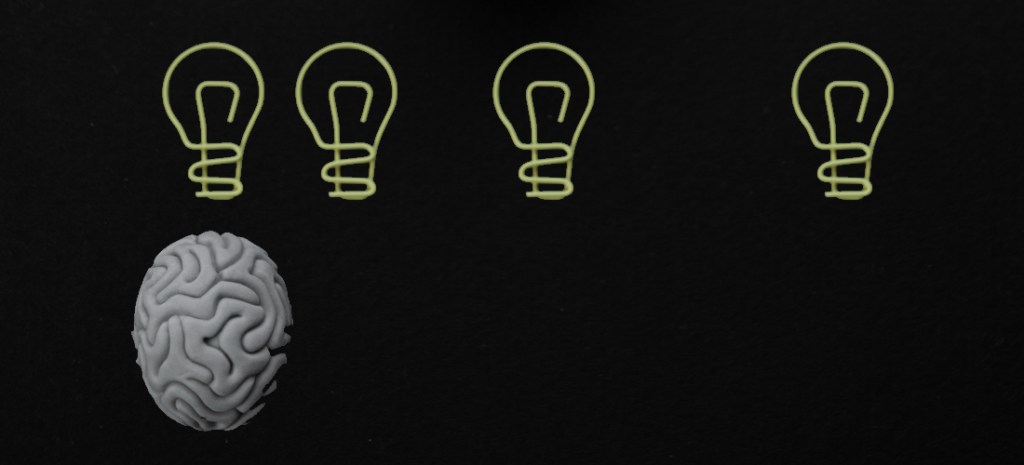Are you looking for ways to improve your learning skills? Do you want to get the most out of your studies and be able to retain the information better? We will discuss several effective learning strategies that can help you become a more efficient learner. We will also look at how implementing these strategies can lead to improved academic performance and higher grades. By taking advantage of these tips and tricks, you will learn how to make the most out of your study time and achieve greater success in school. So let’s get started!
- 13 Effective Learning Strategies for Success
- 1. Set clear and achievable goals
- 2. Embrace active learning
- 3. Discover your learning style
- 4. Develop effective note-taking skills
- 5. Utilize mind mapping
- 6. Use mnemonic devices
- 7. Implement spaced repetition
- 8. Practice retrieval and self-testing
- 9. Optimize your study environment
- 10. Establish effective time management
- 11. Use diverse learning resources
- 12. Utilize technology for learning
- 13. Teach others
- Stay mindful of your well-being
- Why Adopt Learning Strategies?
- Conclusion
- You might also like:
13 Effective Learning Strategies for Success
1. Set clear and achievable goals
You should begin by identifying your specific learning objectives and what you aim to accomplish within a defined timeframe. Make sure your goals are specific, measurable, and relevant to your overall learning journey. For example, if you’re studying for an upcoming exam, set a goal to achieve a certain grade or percentage.
Break down your larger goals into smaller, manageable tasks to create a roadmap for your studies and monitor your progress more effectively. Celebrate incremental achievements, stay motivated, and track your advancement. Ensure your goals are realistic and consider your current abilities, resources, and time constraints. Regularly assess and adjust your goals as needed, and maintain a positive and growth-oriented mindset.
2. Embrace active learning
You should actively engage with the study material and participate in interactive activities. Take part in group discussions, debates, and problem-solving exercises to promote critical thinking and analyze information from different angles. Articulate your ideas and listen to others’ perspectives to enhance comprehension and higher-order thinking skills. By using active learning, you will retain information better. Embrace collaboration and teamwork during group activities to gain insights from your peers and develop essential interpersonal skills.
3. Discover your learning style
To discover your learning style as part of an effective learning strategy, you should begin by reflecting on your preferred ways of learning. Take note of how you naturally absorb and process information—whether you learn best through visual cues, auditory explanations, or hands-on experiences. Pay attention to which study methods and techniques resonate most with you.
Experiment with different learning styles and strategies to see which ones result in better comprehension and retention. Consider taking learning style assessments or quizzes to gain more insights into your dominant learning style. Once you identify your preferred style, adapt your study methods accordingly to align with how you learn best. Embracing your learning style will make your learning experience more enjoyable, efficient, and conducive to your personal growth and academic success.
4. Develop effective note-taking skills
You should actively engage during lectures and readings by listening attentively and identifying key points. Focus on capturing essential information rather than trying to write down everything verbatim. Use abbreviations, symbols, and bullet points to organize your notes and make them more concise. Consider using different note-taking methods like the Cornell method or mind maps to enhance organization and retention.
Review and revise your notes regularly, preferably soon after the lecture or reading, to reinforce your understanding. Consider color-coding or highlighting important concepts to make them stand out. As you practice and refine your note-taking skills, you will develop a personalized and efficient system that complements your learning style, making your study sessions more productive and effective.
5. Utilize mind mapping
Start by selecting a central topic or main idea and write it in the center of a blank page or digital canvas. Then, branch out from the central topic and add related subtopics or key concepts, connecting them to the main idea with lines or arrows. Use images, colors, and keywords to make the mind map visually engaging and memorable. As you explore the subject further, continue expanding the branches with more detailed information.
Mind mapping helps you visualize complex relationships between ideas, aiding in comprehension and memory retention. Use mind maps to summarize lectures, readings, or brainstorm ideas for projects and essays. This versatile technique encourages a more holistic understanding of the subject matter, making your learning experience more interactive and enjoyable.
6. Use mnemonic devices
Leverage memory aids to enhance retention and recall of information. Create associations or connections between new knowledge and existing information in your memory. For instance, use acronyms, rhymes, or vivid imagery to link complex concepts with easy-to-remember cues. Visualize mental images or stories that incorporate the information you want to remember.
Mnemonic devices help you encode information in a more memorable way, making it easier to retrieve when needed. Practice and review these memory aids regularly to reinforce your memory. By incorporating mnemonic devices into your study routine, you can boost your ability to remember and recall key information, making your learning experience more efficient and enjoyable.
7. Implement spaced repetition
Review and revise the study material at regular intervals over time. After learning a new concept or topic, review it again after a short period, then progressively increase the time intervals between each review session. Use flashcards or digital tools to create spaced repetition schedules for optimal retention.
By spacing out your study sessions, you reinforce your memory and move information from short-term to long-term memory, making it easier to recall when needed. Spaced repetition ensures that you retain knowledge over the long term, rather than forgetting it shortly after learning. Incorporate this technique into your study routine for subjects like vocabulary, historical dates, formulas, and other information that requires consistent reinforcement.
8. Practice retrieval and self-testing
You should actively test yourself on the study material to reinforce your understanding and memory. Instead of passively reviewing notes, actively try to recall key concepts, definitions, and important details from memory. Use flashcards, quizzes, or create your own practice questions to quiz yourself regularly. Don’t be discouraged by mistakes; they are valuable opportunities for learning and improvement.
Retrieval practice strengthens your memory by repeatedly retrieving information, making it easier to recall in the future. Incorporate self-testing into your study sessions regularly, spacing out the practice over time for maximum retention. This active engagement with the material enhances comprehension and long-term retention, contributing to a more effective and successful learning experience.
9. Optimize your study environment
Create a space that promotes focus, productivity, and comfort. Choose a quiet area with minimal distractions where you can concentrate fully on your studies. Keep your study area well-lit and organized, ensuring that all necessary materials and resources are readily available. Personalize your study space with motivational quotes, plants, or anything that inspires you.
Consider using ambient music or white noise to enhance concentration if it helps you stay focused. Take regular breaks and make sure to include elements of relaxation, such as a comfortable chair or soothing scents. By crafting a conducive study environment tailored to your preferences, you can maximize your learning potential, making your study sessions more efficient and enjoyable.
10. Establish effective time management
You should begin by creating a study schedule that includes dedicated time for each subject and task. Prioritize your most challenging or important assignments, and allocate focused study periods to tackle them. Break your study sessions into manageable chunks, incorporating short breaks to avoid burnout. Consider using time management techniques such as the Pomodoro Technique to enhance productivity and maintain focus.
Set realistic goals for each study session and track your progress to stay on track with your learning objectives. Be flexible and adapt your schedule as needed, but strive to maintain consistency in your study routine. By managing your time effectively, you can make the most of your study hours, achieve better results, and strike a balance between academics and other aspects of your life.
11. Use diverse learning resources
Explore a wide range of materials to gain a comprehensive understanding of the subject. Look beyond textbooks and consider incorporating online resources, educational videos, podcasts, articles, and interactive learning platforms. Each resource offers unique perspectives and insights, enriching your knowledge base and fostering a deeper grasp of the topic.
Don’t limit yourself to a single source; instead, seek out various viewpoints and teaching styles to find what resonates best with your learning preferences. By using diverse learning resources, you can broaden your horizons, stay engaged, and develop a well-rounded understanding, enhancing the overall effectiveness of your learning journey.
12. Utilize technology for learning
Leverage a variety of educational tools and resources available online. Explore reputable e-learning platforms, educational apps, and digital libraries that align with your subjects of interest. Use online tutorials, video lectures, and interactive simulations to supplement your learning materials and gain a deeper understanding of complex concepts. Take advantage of digital note-taking apps and collaborative tools for group projects and discussions. Stay organized with productivity apps and time management tools to optimize your study schedule.
However, it’s essential to balance screen time and avoid distractions, ensuring that technology enhances rather than hinders your learning experience. By harnessing technology for learning, you can access a wealth of information, engage with interactive content, and cultivate essential digital skills that prepare you for success in the digital age.
13. Teach others
Actively engage in sharing your knowledge and insights with peers or classmates. Explaining concepts to others not only reinforces your understanding but also helps you identify any gaps in your knowledge. Encourage group study sessions or form study groups where you can take turns teaching and learning from each other. Utilize visual aids, diagrams, or real-life examples to make your explanations more engaging and easy to understand.
Embrace questions and discussions, as they provide valuable opportunities for deeper learning and critical thinking. By teaching others, you solidify your understanding of the material, develop strong communication skills, and contribute to a collaborative learning environment that benefits everyone involved.
Stay mindful of your well-being
Prioritize self-care and strike a balance between academic pursuits and personal life. Ensure you get enough rest, nutrition, and exercise to keep your mind and body in optimal condition. Incorporate regular breaks into your study schedule to prevent burnout and maintain focus.
Engage in activities you enjoy and practice relaxation techniques like meditation or deep breathing to manage stress. Seek support from friends, family, or counselors if you feel overwhelmed. Remember that your well-being is essential for effective learning, as a healthy and balanced mind fosters better concentration, retention, and overall academic performance.
Why Adopt Learning Strategies?
Adopting effective learning strategies is crucial for several reasons, as they play a significant role in shaping an individual’s academic success, personal growth, and overall learning experience. Adopting effective learning strategies is not just about achieving academic success; it is about developing a mindset and set of skills that will benefit individuals throughout their lives. By making the most of their learning journey, individuals can unlock their full potential and become lifelong learners who are better equipped to face the challenges of an ever-changing world. The benefits of adopting effective learning strategies include:
1. Enhanced Learning Efficiency
Effective learning strategies are designed to optimize the learning process. By employing these strategies, students can absorb information more efficiently, enabling them to grasp concepts quickly and with greater depth. This efficiency leads to better time management and the ability to cover more material effectively.
2. Improved Retention and Recall
Learning strategies like spaced repetition, retrieval practice, and mnemonics help enhance memory retention and recall. By spacing out study sessions and actively retrieving information, learners can store knowledge in their long-term memory, making it easier to recall when needed, such as during exams or real-life applications.
3. Active Engagement
Effective learning strategies often involve active participation and engagement with the material. Active learning, self-testing, and discussions promote critical thinking, problem-solving, and a deeper understanding of the subject matter. This engagement fosters a more meaningful learning experience.
4. Personalization
Everyone has a unique learning style and preferences. Adopting effective learning strategies allows individuals to tailor their study methods to align with their learning style, making the learning process more enjoyable and effective.
5. Motivation and Confidence
Success in learning breeds motivation and confidence. When students see improvements in their understanding and grades through the use of effective learning strategies, they become more motivated to continue learning and challenging themselves.
6. Lifelong Learning
Learning is a lifelong journey, and effective learning strategies equip individuals with the skills and mindset to continue learning beyond the classroom. The ability to learn effectively becomes an invaluable asset in both personal and professional growth.
7. Preparation for Real-World Challenges
Many effective learning strategies emphasize problem-solving, critical thinking, and practical application of knowledge. These skills are highly transferable to real-world challenges, enabling learners to adapt and thrive in various situations.
8. Reduced Academic Stress
Effective learning strategies enable students to study smarter, not just harder. This approach can alleviate academic stress and burnout, as learners feel more in control of their learning process and better equipped to handle academic demands.
9. Positive Learning Experience
Learning should be enjoyable and fulfilling. When students adopt strategies that align with their needs and learning style, they are more likely to develop a positive attitude towards education, leading to a lifelong love for learning.
10. Continuous Improvement
Effective learning strategies promote regular self-assessment and reflection. This habit of seeking feedback and identifying areas for improvement fosters continuous learning and growth.
Conclusion
Effective learning strategies are essential to achieve success in the classroom and beyond. By understanding how our brains process information, we can create a personalized approach that works best for us. From breaking tasks down into smaller chunks, to taking regular breaks or using memory techniques such as mnemonics, there is no one-size fits all solution when it comes to effective learning strategies. However, by experimenting with different methods and finding what works best for you, you will be able to maximize your potential and become an efficient learner!
You might also like:
- Mind Mapping for Learning: 14 Easy Steps to Mastery
- Pomodoro Technique: 5 Steps for Effective Time Management



